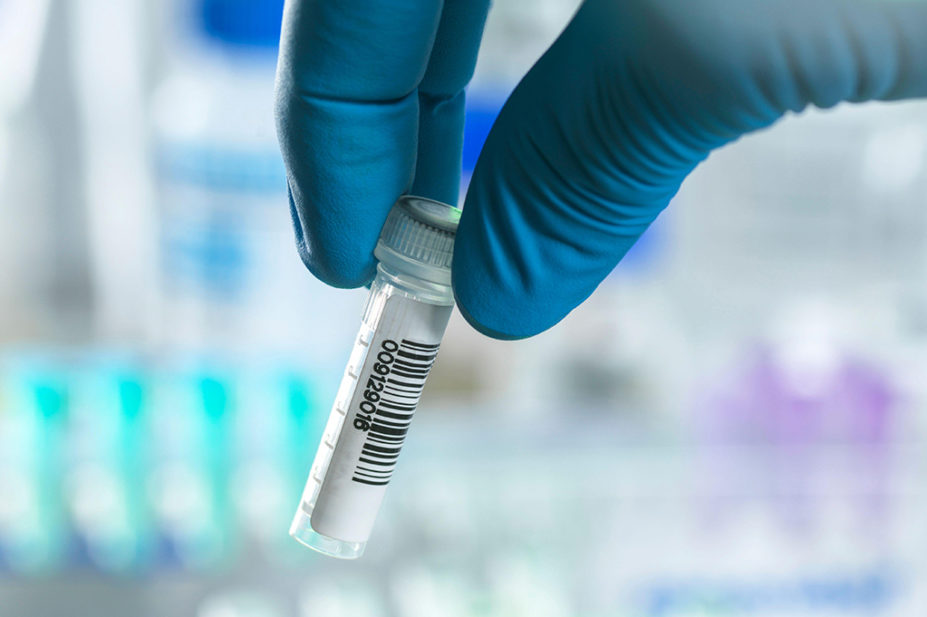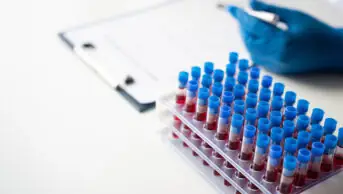
Cavan Images / Alamy Stock Photo
It would be feasible to use whole-genome sequencing in general practice to identify risks such as cancer and heart disease, research has suggested.
Results from a study of 100 patients at a private GP practice in London showed that 1 in 5 had “actionable” genetic alterations that increased their risk of diseases, including cancer, heart diseases and blood clotting diseases.
Presenting their data at the American Society of Clinical Oncology conference, which was held between 3 and 7 June 2022 in Chicago, Illinois, the researchers said the ‘90S Study‘ was set up to establish what a genome screening pathway would look like in primary care and whether it was practical.
The research — led by experts from the Institute of Cancer Research and Royal Marsden NHS Foundation Trust, and thought to be the first of its kind in the UK — recruited 102 patients between 2020 and 2022 who were offered a series of tests, including routine baseline blood tests, an ECG and echocardiogram, and abdominopelvic ultrasound to place the genetic sequencing as part of a detailed medical review.
Researchers then used genomic sequencing to looked for 566 separate genetic changes linked to disease, including 84 genes related to cancer and 77 linked to heart conditions, and others related to the metabolism or response to certain medicines.
Results showed that 20 individuals (20%) had an actionable genetic variant in cancer (10), thrombophilia (8) or cardiac rhythm disorder genes (2), meaning that the result could change the way patients and their families were managed by their doctor, through monitoring, screening or other forms of prevention.
The researchers also found that 80% of participants had a variant in an autosomal recessive gene, which meant they risked passing on a condition to any potential children if their partner had the same recessive alteration. Pharmacogenomics results yielded significant variants in 30% of patients.
The researchers concluded that more work is now needed to evaluate patient benefit as well as whether the results can be translated to the NHS on a larger scale.
Study leader Ros Eeles, professor of oncogenetics at the Institute of Cancer Research and one of the researchers, said their work showed that whole-genome screening was feasible in general practice; provides important genetic information; and is likely to benefit patients by making preventative measures or counselling available to them.
“Our findings suggest that integrating whole-genome sequencing into primary care could change the way most patients and their families are managed by their GPs — either by detecting genetic variants that will affect a patient’s own health, or by highlighting their risk of passing on a genetic alteration which is important for future family planning,” she said.
Commenting on the findings, David Wright, professor of health services research at the University of Leicester, said the effect of the study on wider practice was likely to be limited owing to the location and nature of the testing.
“I don’t envisage pharmacogenomic testing to be undertaken alongside other tests in this manner, largely because of the workload associated with obtaining patient consent to undertake so many different tests and then having to explain each of them to the patient,” he said.
Wright added that for testing of the type used in the study, genetic counselling services may be required, which further adds to the complexity. Pharmacogenomic testing on its own may be more appropriate for adoption into current NHS services, he added, but would still mean a lot of work.
“For this reason, I would suggest that pharmacogenomics implementation in primary care should be undertaken as a partnership between GPs and community pharmacists and incorporated into the national pharmacy contract,” he said.
Read more: Only one in ten pharmacy professionals feel confident on pharmacogenomics


